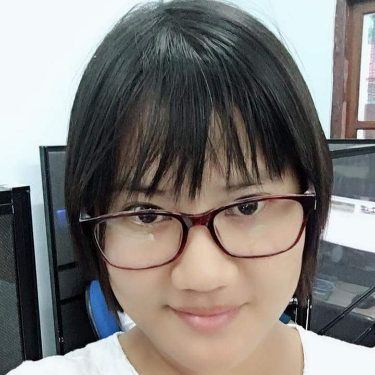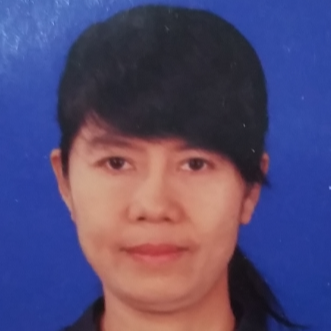International Journal of Information Technology and Computer Science (IJITCS)
IJITCS Vol. 10, No. 12, 8 Dec. 2018
Cover page and Table of Contents: PDF (size: 734KB)
Phoneme Concatenation Method for Myanmar Speech Synthesis System
Full Text (PDF, 734KB), PP.13-20
Views: 0 Downloads: 0
Author(s)
Index Terms
Myanmar language, phoneme, concatenative speech synthesis
Abstract
This paper discusses the approach used to develop a Text-to-Speech (TTS) synthesis system for the Myanmar language. Concatenative method has been used to develop this TTS system using phoneme as the basic units for concatenation. In this proposed system, phoneme plays an important role so that Myanmar phoneme inventory is presented in detail. In Myanmar language, schwa is the only vowel that is allowed in a minor syllable or consonant that has half-sound of the original one. If these half sound can be handled, the TTS quality will be high. After analyzing the number of phoneme and half-sound consonant to be recorded, create the Myanmar phoneme speech database which contains total 157 phoneme speech sounds that can speech out for all Myanmar texts. These phonemes are fetched according to the result from the phonetic analysis modules and concatenated them by using proposed new phoneme concatenation algorithm. According to the experimental results, the system achieved the high level of intelligibility and acceptable level of naturalness. As the application area, it is intended for the resource limited device to use as language learning app and so on.
Cite This Paper
Chaw Su Hlaing, Aye Thida, "Phoneme Concatenation Method for Myanmar Speech Synthesis System", International Journal of Information Technology and Computer Science(IJITCS), Vol.10, No.12, pp.13-20, 2018. DOI:10.5815/ijitcs.2018.12.02
Reference
[1]A. Black and N. Campbell, “Optimizing selection of units from speech database for concatenative synthesis,” Proceeding of EUROSPEECH’95, vol. 1, pp. 581-584, Sept. 1995.
[2]A. Conkie, “A robust unit selection system for speech synthesis,” Proc. of 137th meet. ASA/Forum Acusticum, 1999.
[3]A. J. Hunt and A. W. Black, “Unit selection in a concatenative speech synthesis system using a large speech database,” Proc. of ICASSP, vol. 1, pp. 373-376, 1996.
[4]T. Toda, H. Kawai, M. Tsuzaki and K. Shikano, “Unit selection algorithm for Japanese speech synthesis based on both phoneme unit and diphone unit,” Proc. of ICASSP, vol. 1, pp. 465-468, May 2002.
[5]M. Douke, M. Hayashi, and E. Makino, “A study of automatic program production using TVML,” Short Papers and Demos, Eurographics, pp. 42-45, 1999
[6]G. D. Ramteke, R. J. Ramteke, “Efficient Model for Numerical Text-To-Speech Synthesis System in Marathi, Hindi and English Languages”, International Journal of Image, Graphics and Signal Processing(IJIGSP), Vol.9, No.3, pp.1-13, 2017.DOI: 10.5815/ijigsp.2017.03.01
[7]P. Kasparaitis. and K. KANČYS., “Phoneme vs. Diphone in Unit Selection TTS of Lithuanian”, BALTIC JOURNAL OF MODERN COMPUTING, 6(2), pp.162-172, 2018.
[8]M.J. Jannati, and A. Sayadiyan, A, “Part-Syllable Transformation-Based Voice Conversion with Very Limited Training Data”, Circuits, Systems, and Signal Processing, 37(5), pp.1935-1957, 2018.
[9]K. Y. Win and T. Takara, “Myanmar text-to-speech system with rule-based tone synthesis,” Acoustical Science and Technology, vol. 32, no. 5, pp. 174–181, 2011.
[10]E. P. P. Soe and A. Thida, “Text-to-speech synthesis for Myanmar language”, International Journal of Scientific & Engineering Research, vol. 4, no. 6, pp. 1509–1518, 2013.
[11]Y. K. Thu, W.P. Pa, Ni, J., Shiga, Y., Finch, A., Hori, C., Kawai, H. and Sumita, E. HMM based Myanmar text to speech system. In Sixteenth Annual Conference of the International Speech Communication Association. 2015.
[12]C.S. Hlaing and A. Thida, “Phoneme based Myanmar text to speech system”, International Journal of Advanced Computer Research, 8(34), pp.47-58, 2018
[13]Myanmar language commission, Myanmar grammar.30th year special edition. University Press, Yangon, Myanmar; 2005
[14]Z. M. Maung, and Y. Mikami, “A rule-based syllable segmentation of Myanmar text”. In Proceedings of the IJCNLP-08 Workshop on NLP for Less Privileged Languages. 2008.
[15]R. Lass. English Phonology and Phonological Theory: Sincronic and Diacronic Studies. Cambridge: Cambridge University Press. 1976.
[16]T. Tun, “Acoustic phonetics and phonology of the Myanmar language”, School of Human Communication Sciences, La Trobe University, Melbourne, Australia, 2007.
[17]M. Karjalainen. “Review of Speech Synthesis Technology”. Helsinki University of Technology, Department of Electrical and Communications Engineering. 1999 Mar 30.
[18]Text to speech testing strategy, Version 2.1”, Technology Development for Indian Languages Programme DeitY, 07 July, 2014

